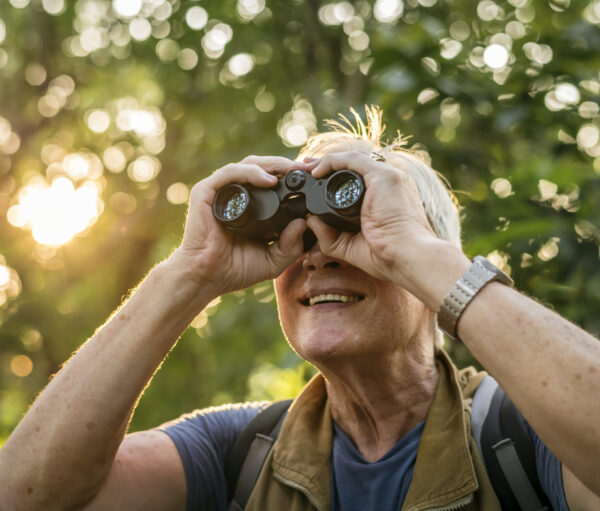Cultivating Curiosity

We often hear about the importance of staying active as we get older—physically, socially, mentally. But there’s another secret ingredient to healthy aging that doesn’t get as much attention: curiosity.
Staying curious isn’t just for children or scholars. It’s for anyone who wants to keep life rich and meaningful, no matter their age. Whether it’s learning something new, exploring a fresh perspective, or simply wondering why things are the way they are, curiosity adds energy, purpose, and even joy to our days.
Curiosity is good for our brains. Researchers from the University of California Los Angeles found that older adults who are interested in learning new things relevant to their interests may be able to delay or prevent cognitive decline.
Another study by Columbia University’s Zuckerman Institute examined the brains of people assessing “visually ambiguous” images, such as something in the sky that can’t quite be identified. Is it a bird? Is it a plane? That’s your brain on curiosity—something that has helped human survival.
“What distinguishes human curiosity is that it drives us to explore much more broadly than other animals, and often just because we want to find things out, not because we are seeking a material reward or survival benefit,” said Dr. Jacqueline Gottlieb, professor of neuroscience at Columbia’s Vagelos College of Physicians and Surgeons. “This leads to a lot of our creativity.”
Curiosity fuels the brain. Studies show that being curious stimulates memory, improves mood, and can even boost longevity by encouraging mental agility and engagement with the world. But beyond the science, curiosity helps us stay connected—to others, to the world, and to ourselves.
“Curiosity entails a sort of enthusiasm, a willingness to expend energy and investigate your surroundings. And it’s intrinsically motivated, meaning that nobody is paying you to be curious; you are curious merely based on the hope that something good will come when you learn,” Dr. Gottlieb said. “Those are just some of the amazing things about curiosity.”
It’s curiosity that leads someone to ask a neighbor about their garden, to try cooking a new cuisine, or to finally figure out how to stream that show everyone’s talking about. It’s what keeps conversations interesting, relationships fresh, and routines from becoming ruts.
Cultivating curiosity doesn’t have to mean going back to school or picking up a complex new hobby. It’s often about embracing a mindset of “I wonder…” and following where that wondering leads. It might look like:
- Asking your grandkids what music they’re into—and actually listening.
- Taking a class at the local library or community center.
- Visiting a museum, even if it’s just to see one new exhibit.
- Reading books outside your usual genre or watching documentaries that spark questions.
- Starting a small garden and learning about native plants.
- Exploring a new walking route and noticing what’s different.
If curiosity has taken a backseat to life’s routines, don’t worry—it’s never too late to bring it forward again. Start small. Ask more questions, even the silly ones. Say yes to something a little outside your comfort zone. Be willing to not know something, and then go find out.
And perhaps most importantly: stay open to new things. Curiosity is less about finding answers and more about being open to possibilities.
Aging brings changes, but it also brings perspective, experience, and the freedom to explore interests you may not have had time for earlier. Staying curious is one of the simplest, most powerful ways to keep that spark alive.
So go ahead—ask, explore, wonder. The world still has plenty of surprises waiting for you.
This article is not intended to replace the advice of your health care provider.
Source: IlluminAge


